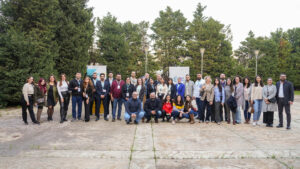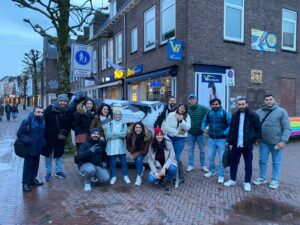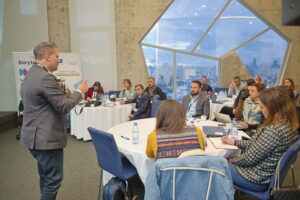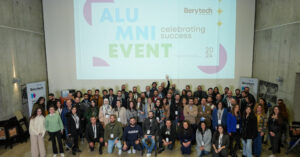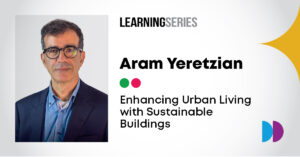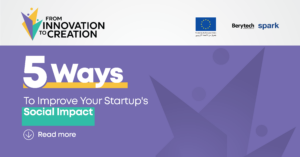When driving into Beirut from either side of the coast, you are bound to be greeted by the foul odor of one of its multiple open dumps. Landfills in Costa Brava, Bourj Hammoud, and Jdeideh were not suggested to operate forever, as they were a temporary solution for an ongoing problem. The lack of sustainable waste management strategies has had a severe impact on the community and the environment. As the costs of waste mismanagement pile up, the lost opportunity of turning this waste into revenue and raw material grows even greater.
Direct impact on health
The immediate health impact of open dumps can be measured in surrounding communities. “Hydrogen sulfide, a colorless chalcogen-hydride gas, is poisonous, corrosive, and flammable. It exposes residents within a three-kilometer radius of the site. This gas can lead to eye inflammation, headache, fatigue, irritability, insomnia, digestive disturbances, and weight loss,” explains Samar Khalil, an Environmental and Chemical Safety Officer at the American University of Beirut.
With years of professional experience in integrated environmental management, including water resources and waste management, Khalil points out that Lebanon is home to nearly 1,000 open dumps, 617 of which are municipal solid waste dumps, many being burned regularly and others tossed in the open Sea.
In 2017, Human Rights Watch found that many dumps are burned directly adjacent to people’s homes exposing them to chemicals leading to heart illness, cancer, skin infections, asthma, and respiratory diseases. The same organization warned in 2019 that landfills were reaching capacity and incited the government to embrace a more comprehensive solid waste management strategy that respects everyone’s right to health. Khalil confirms the obvious: nothing has been done.
The politics of waste
Ziad Abichaker, CEO of Cedar Environmental, an engineering company,, explains that “as with any other governmental sector in Lebanon, the waste management sector fell target to political disputes,” indicating that each district, depending on how much waste it generates, should have one or two factories to sort, organize and categorize waste in preparation to ferment, sell or recycle it.
“For every 100 kilograms of waste formed in Lebanon, there is an average of 70 kilograms of organic waste,” said Abichaker. “70 kilograms of organic material can make around 30 kilograms of fertilizer, which the country imports in hard currency rather than create from waste.”
To further understand the process, Senior Solid Waste Management Specialist at Dar, a privately-owned international multidisciplinary consulting organization, Neemat Abou Cham, explains that the Lebanese law assigns waste management to municipalities, which plays an essential role in this sector. “Waste management needs a strategy that is well planned from the point of waste generation all the way downstream where treatment and disposal occur. In Lebanon, it has always been done in urgency, in response to an imminent crisis, which explains the significant number of dumpsites distributed all over the country.”
Abichaker argues that “municipalities are broke, and this solution requires funds.” The environmentalist thinks the waste management plan requires an investment, but not much money, if this sector is seen as a resource rather than a problem.
Waste mismanagement, a lost potential
Abou Cham agrees with Abichaker, when he says that good management practices should be followed as a solution, which includes transporting, sorting, treating, and transforming waste. This process will lead to delivering a product that can be resold in the market.
“The regulatory framework for waste management is already there. However, the problem remains in the implementation process.” Abou Cham identifies that political interferences and the absence of political intention to solve such issues restrict the establishment of a comprehensive solution. Hence, at a governmental level, it is essential to establish a committee with members from all the appropriate concerned parties (ministries of environment, interior and municipalities, health, etc.) to put in position a suitable execution mechanism for waste management.
She sees tremendous efforts being made to raise awareness about waste management practices, including many NGOs and startups introducing initiatives to promote waste separation and recycling with incentives. Yet, she asserts that an essential percentage of the population is still unfamiliar with the “3R’s (reduce, recycle, recuse) principle and the international sustainable waste management hierarchy.”
Abou Cham also believes that awareness campaigns should be intensified to reach all communities. Such campaigns should highlight the importance of waste reduction in the first place, source separation of waste to facilitate handling/processing of trash at the secondary separation facilities (clean and dirty Material Recovery Facilities – MRF), composting facilities, etc.
Waste as resource
Plastc Lab is a startup operating on recycling plastic to create sellable products. Plastc Lab came up with a solution of a 100% recycled plastic sheet made from waste. Brothers Rami and Ralph Sbeih created Plastc Lab in 2020. Aiming to turn the plastic waste flooding across Lebanon into a valuable resource for the country and, ideally, expand internationally, the initiative shifted into a company. Rami, the biochemist who sees plastic waste as a resource, tried to work alongside municipalities to transform their waste or buy it from them.
His plan didn’t work. “Municipalities prefer pressing the plastic all together rather than cleaning it and sorting plastic into its seven different types. “The machine that cleans the plastic costs around $20k and it consumes a lot of water,” Rami explains. He adds, “to avoid that problem which includes water pollution, we are buying from companies that collect waste plastic in Lebanon, shredded or in panels.”
A much-needed change of mentality
Joslin Kehdy, founder and director at Recycle Lebanon, explains that the problem is a mentality that has existed for a long time. ‘Recycle Lebanon’ is a pun to re[psy]cle the system from mindsets to actions. The organization sheds light on indigenous and post-industrial circular living cultures with a holistic technique to access nature-based alternatives. To do that, Joslin refers to the Regenerate Hub circular economy platform, where according to her, “the community gets involved in considering the flow, impact, and value of resources across interconnected sectors, understanding how systems can be enhanced, and who is working to develop alternatives on the ground.” Joslin counts on her NGO and considers their primary goal to build on dreams for system change, from production to consumption.
Green Track is a fine example of how engaging the community leads to great results. Khoder Eid launched the initiative by convincing his mother and her friends about the importance of sorting at the source and the need to create an awareness campaign involving his neighborhood in Tripoli. From the 5000 houses they initially visited with clear sorting instructions, they received a 60 to 80 percent response rate. The startup adopted a simple flyer that teaches people how to separate waste into recyclables and organic waste in blue and black bags respectively. These are disposed of in blue and black bins that are strategically placed under each building. Khoder believes that when people see that the garbage is being collected separately while respecting the sorting process, they will trust the system and continue to place efforts into sorting.
“Industrial companies buy our clean, compacted, and good quality raw material: plastic, metal, paper and cardboard, glass, electronics, and fabric. When you do the sorting at the source, the waste we receive in the facility is clean. We use organic waste in composting and the value of clean recyclables increases. When we sell the raw material to a factory, it will not spend a lot of energy on cleaning it to use it,” he describes the results of green track’s model.
A problem or a resource
If well managed, waste is a resource that generates income. The waste hierarchy demands a collaborative effort by all the parties involved. Communities seeking to sort their household waste can only recycle if the infrastructure for assembling their sorted waste is functional. On the other hand, with a well-governed plan, municipalities will be able to recycle an increasing share only if households and business sort their waste and the strategies implemented are more serious. In the end, waste is either a problem or a resource, depending on how it’s being managed.
This article is published under the Diverting Waste by Encouraging Reuse and Recycling (DAWERR), a five-year activity funded by the United States Agency for International Development (USAID) with the goal to establish sustainable and replicable integrated solid waste diversion and valorization solutions in rural areas. of Lebanon.





